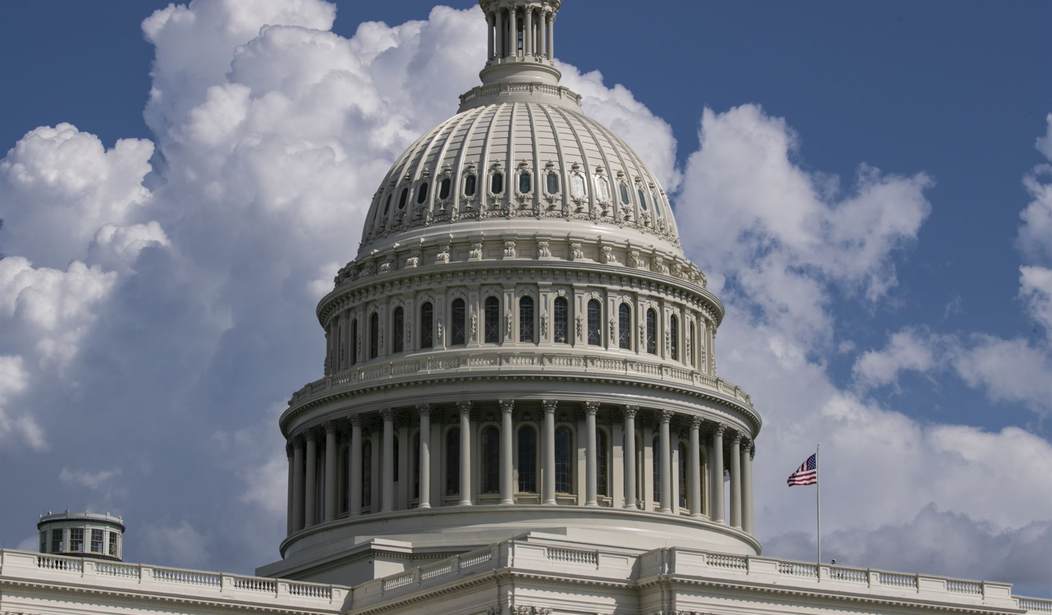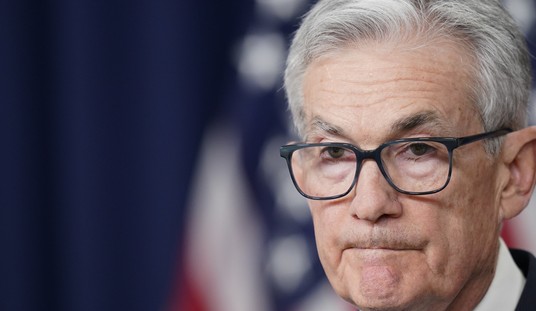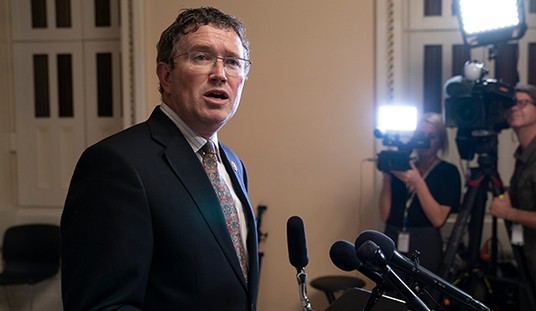If there's something the government does well, it's spend money. It does it with great fervor, no matter who's in charge of Congress or the White House. And it's made easier these days, thanks to our legislators' collective unwillingness to follow a regular budget process and their carelessness about the fiscal health of this country. Case in point: the $854 billion Senate spending bill making its way to the House this week.
Considering how large the total spending package is, you'd think it might pay for all discretionary spending (that's the part of the budget that funds transportation, defense, infrastructure, education and more). But it's only a little more than 65 percent of discretionary spending for 2019. Instead, it covers just one year of defense spending (a Republican priority) and the Labor, Health and Human Services and Education bill (a Democratic one). As for the remaining discretionary spending, it's provided in a smaller bill meant to fund the government through Dec. 7.
The best way to describe the funding vehicle is as a political balancing act that allows Congress to, yet again, fail to deliver on its No. 1 job: passing an annual spending bill on time. Pretending this isn't how it's been done for years now, Vermont Sen. Patrick J. Leahy, the top Democrat on the Senate Appropriations Committee, defended the move by saying, "This is necessary to ensure that we do not face a government shutdown in the event that we do not finish our work on the remaining bills."
As all procrastinators know, the longer you delay what you should be doing – and the closer to the deadline you let yourself go – the sloppier the final product will be, the more opportunities you'll miss and the less you'll be able to meet your goals. Now Congress finds itself yet again scrambling to avoid a partial government shutdown on Sept. 30. This is also another missed opportunity to address the overspending issues the Republicans promised voters they would take care of once in power. And, for better or worse, the Republicans in Congress are not meeting many of their budget goals, like defunding Planned Parenthood.
Recommended
The funding package was approved last week in the Senate with a bipartisanship rarely seen in the higher chamber these days. Only seven Senators voted down the bloated spending bill. And off to the House it goes. There, too, it's expected to get all the support it needs to make it to the president's desk, where – despite Trump's protest about the lack of funding for a border wall – it will likely be signed into law.
Most of the conservative criticism revolves around the lack of funding for a wall that would do nothing to address the need for immigration reform. To the extent that they complain about excessive funding, it's for the roughly $550 million going to Planned Parenthood. Some critics also register a few complaints about busting the nondefense caps imposed by the Budget Control Act of 2011. They fail, however, to note that busting the defense caps, like this and earlier budget deals does and did, is no more acceptable. Nor do they duel on the fact that the higher spending levels are the product of the last February's Bipartisan Budget Act of 2018, which further eroded 2011's fiscal restraints while growing the debt by $300 billion.
With a deficit about to reach $1 trillion – several years ahead of schedule – and with the federal debt exploding, the only thing serious legislators should do is go through the budget line by line to see what programs should be trimmed or terminated. Granted, the fast-growing part of the budget isn't the discretionary side but the mandatary one (with Social Security, Medicare and Medicaid). Yet everything should be up for review. There should be no sacred cows.
This should apply to the defense budget, too. Not all additional dollars spent on defense actually increase national security, because – like everything else in the budget – it falls victim to parochial interests and mismanagement. Yet time and time again, conservatives in Congress are so obsessed with adding more spending to the $650 billion defense budget that they easily agree to increase spending for most discretionary programs.
Unfortunately, cutting spending takes time and discipline. It can't be done at the last minute in a bill meant to avoid a shutdown.
Veronique de Rugy is a senior research fellow at the Mercatus Center at George Mason University.
























Join the conversation as a VIP Member